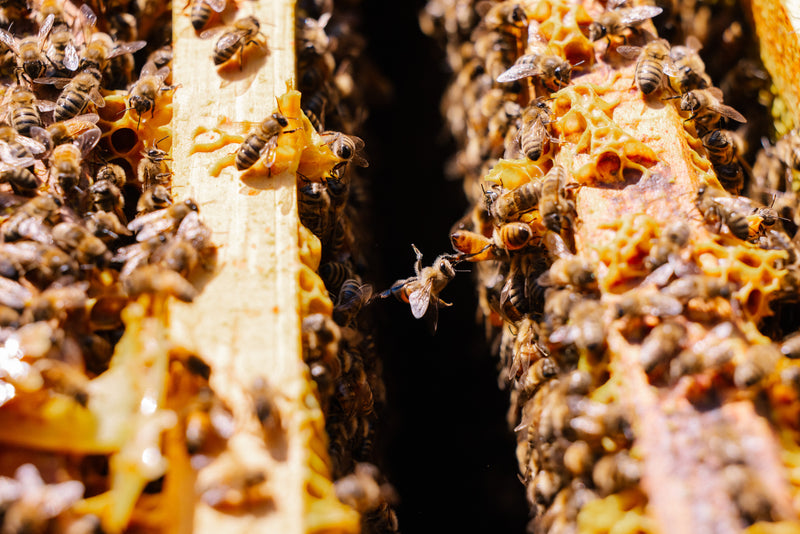
Despite our best efforts, we may lose our precious colony over the long, cold, wintering months. While losing a colony may not be uncommon, it is always deeply upsetting and disheartening. But why does this happen? Understanding the reasons behind a colony's loss is essential—not just for closure but for preventing similar outcomes in the future.
A colony death is sometimes referred to as a ‘dead out.’ Although an accurate term, it can sound quite crass. ‘Dead outs’ can occur for a number of reasons: disease (Nosema or Varroa Mites are two very common reasons), starvation, moisture in the hive, failed queen and the list goes on. Before you reintroduce a colony into the equipment from your previous hive that did not survive winter, you should try and identify why they didn’t make it.
Identifying a Dead Out
How can we pinpoint the reason for a hive loss? This often involves a process of elimination. Start by considering the timing of your last mite treatment or test. Look for signs of disease on the hive equipment or bare frames—an absence of honey could indicate starvation. By retracing your steps and reviewing your fall hive management practices, you may be able to pinpoint the cause of your colony's failure to survive the winter.
Tap into Local Resources
Your local bee clubs and beekeeping communities are fantastic resources. Experienced beekeepers in your area may have valuable insights or similar experiences to share. They can provide advice and guidance that might help you identify what went wrong.
At Home Grown Bee, we also recommend reaching out to your local apiary inspector. These experts work to reduce the spread of disease and can ask pointed questions to help determine the cause of your hive loss. To find an apiary inspector near you, click the link:
Test your dead bees
Lastly, you can send your dead bee samples to the lab diagnostics in Abbotsford. This test is FREE! You send 50 dead bees to the lab diagnostics where they will look at your bees under the microscope to identify if you have any nosema spores or other important viruses. If you are unable to confidently confirm why your colony did not make it through winter, this may be the most important step you do prior to introducing a new colony into your equipment come spring. Nosema spores are unidentifiable to the naked eye yet they persist in old equipment/comb. If your colony died from nosema, you can re-infect your new spring hive! For information on sending lab samples: https://www2.gov.bc.ca/assets/gov/farming-natural-resources-and-industry/agriculture-and-seafood/animal-and-crops/animal-production/bee-assets/shipping_samples_for_id.pdf .
When you spot a 'Dead Out'
It is important to note that once you spot a dead out in your apiary, you should seal the entrances or remove the equipment from the yard. This prevents any neighbouring colonies from developing robbing behaviour (stealing food stores from nearby hives) and also prevents potential transfer of disease.
By learning from our winter losses, we can make an action plan. How can we better support our bees for the upcoming season and the following winter? Through addressing our concerns, we can then start our upcoming beekeeping season with a renewed sense of confidence with the ultimate goal of setting ourselves up for success. Although, beekeeping may not be for the faint of heart, it is important and nonetheless rewarding!
